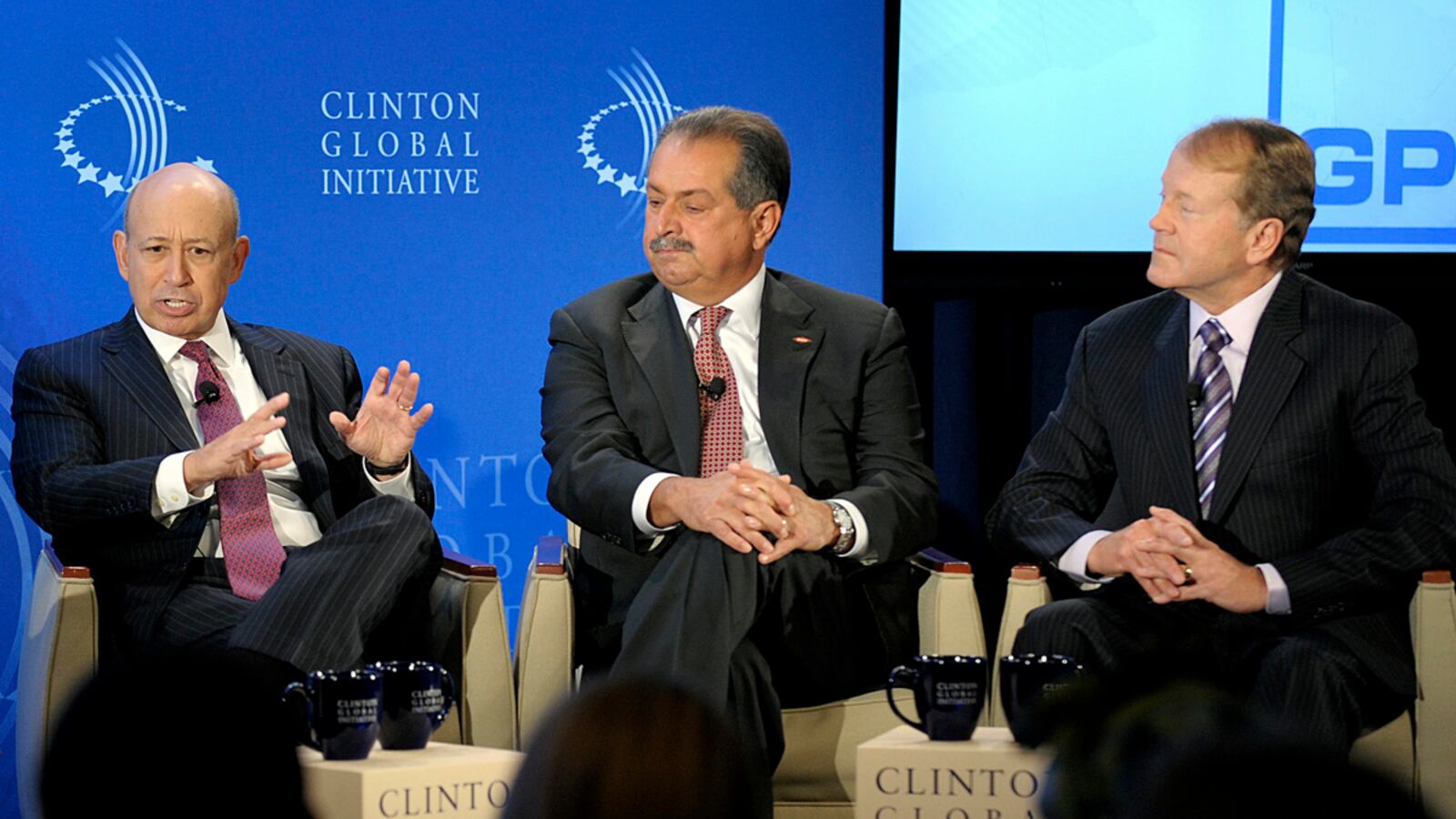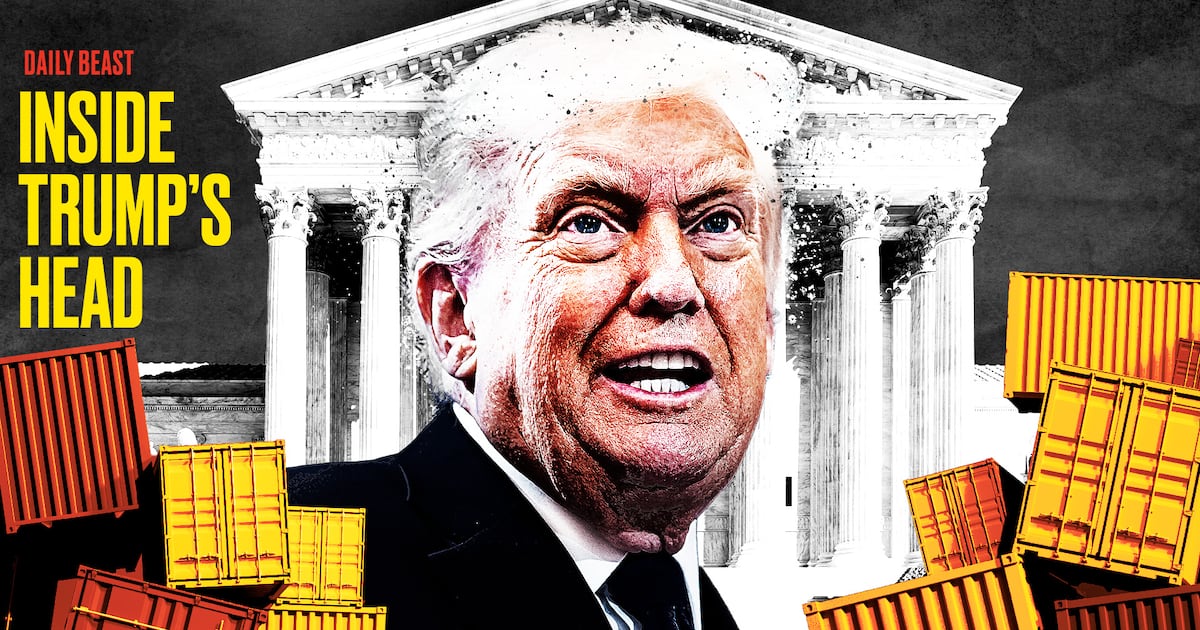Uncertainty in American politics is hampering a more robust economic recovery in the United States, three CEOs said Monday during a panel at the annual Clinton Global Initiative conference—and partisan politics are largely to blame. No matter who wins the election, the hope among the business executives—Goldman Sachs CEO Lloyd Blankfein, Cisco chief John Chambers, and Dow Chemical’s CEO Andrew Liveris—is that politicians manage to get over their partisan differences and compromise on measures to help stimulate American business.

Amid scaremongering from both extremes of the political spectrum, American politicians need to make it clear to the world that ideological differences can be bridged, that the dollar’s status as a reserve currency is strong, and that American businesses make good sense for foreign investment.
“America is not in terminal decline,” Liveris said, and companies need to take a new tack when it comes to talking to the American public. “Business needs to elevate to where the debate has gone and not complain that it’s just politics,” he said.
The panel of executives was moderated by CNN host Fareed Zakaria.
The difference between a President Romney or Obama will not matter as much as whether or not moderates from both sides of the aisle are able to strike compromises that benefit the economy, Liveris said. Many of America’s problems are “self-inflicted,” Blankfein said, and coming to an agreement on one of them, such as a deal to cut the national debt, could solve a large number of smaller problems.
Blankfein added that the time for the kind of gamesmanship that brought America to the brink of default as partisans squabbled over the debt ceiling in the summer of 2011 has passed.
“People who have been pouting and holding their breath aren’t going to want to do that for four more years,” Blankfein said.
The businessmen rattled off lists of countries more amenable to development than America—Italy, Canada, Germany, the United Kingdom, even Russia—and Blankfein joked that it was easier for businesses to work pretty much anywhere else.
“You find it easier to deal with Putin’s Russia than the United States?” Zakaria asked incredulously.
“I think we must do better in the U.S.,” said Chambers, whose company has been called to congressional hearings to answer questions about how its products may aid Internet censorship in China. “I think we have a country that dreams well. I think we have to do better in execution.”
Zakaria asked why the support President Obama enjoyed from Goldman Sachs employees has been less substantial this election season, and Blankfein said that he thinks “there’s been a disappointment” among Wall Street bankers with the current administration.
Bankers aren’t the only Americans who have to make decisions of impact in high-risk environments, Blankfein said, adding that he sympathizes with public servants, who he said can face much of the same public scrutiny businesses are subject to but who receive far less in the way of financial compensation.
“Risk taking is not just the risk we take,” Blankfein said, referring to his company and other major banks. Under hostile scrutiny even the most able public servants can end up “a little tortured,” he said.
Speaking of the tendency for Americans to pile on business leaders or politicians who make bad choices, the Goldman CEO said, “You can’t kill people if everything doesn’t work out.”






